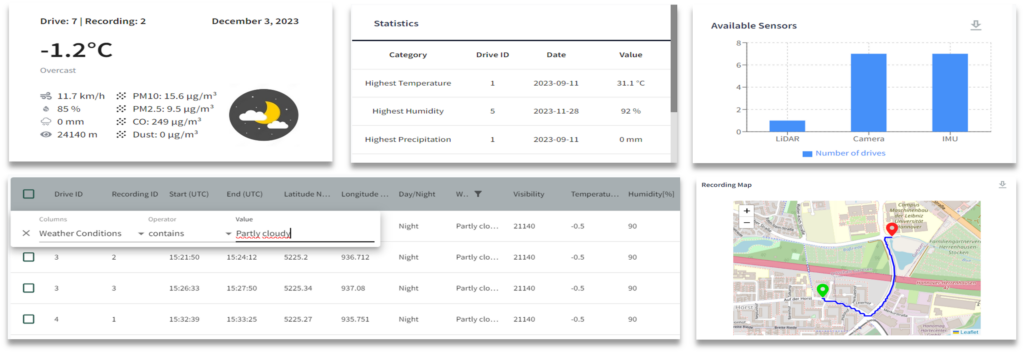
In the evolving field of engineering sciences, effectively managing large datasets is important for advancing research and development. Traditionally, large datasets have been cumbersome to handle and often underutilized due to their big size and ambiguous nature. Field data exemplifies this challenge, as data collection procedures using various sensors frequently produce vast amounts of data. In pursuit of our objective to develop a digital twin for field data management, we have established the Field Database Platform (FDP). This platform is designed to introduce an innovative approach to interacting with research field datasets.
Understanding Digital Twins, Masters, and Shadows
Before diving into the specifics of the FDP, let us clarify a couple of key concepts: digital twins, digital masters, and digital shadows:
- Digital Twins are virtual representations of physical entities such as processes, products, or services which replicates the behavior of physical entities in a virtual space. Digital Twin Model twins physical and virtual worlds and this pairing allows data analysis and system monitoring to predict imminent problems, anticipate breakdowns, and plan for the future through simulations.
- Digital Masters contain the product geometry and system behavior models derived from product development, tailored for use in the digital twin.
- Digital Shadows represent operational, state, or process-related data from the physical twin, collected from specific product instances (Krückemeier, Slim, Anderl, 2022).
At TA GOLO, our focus is to develop a Digital Twin specifically for managing field data. Our particular focus is facilitating data exchange between physical and digital entities, laying the groundwork for a Digital Twin in field data management. Our FDP is integral to this process, as it manages and utilizes the data generated by the digital shadows of the technical system.
Introducing the Field Database Platform
Our FDP is not a data storage unit but is an active management system designed specifically for data collected from field sensors, which represent the Digital Shadows of the technical system. The platform includes a web dashboard that provides not only data visualization but also interactive capabilities for researchers to conduct preliminary analyses, identify trends, and filter data based on specific research needs or experimental parameters.
Why the Field Database Platform matters
The accessibility and (re)usability of data are the foundational pillars of the FDP. Researchers can now engage with the data in a better way, enhancing both their understanding and the utility of the provided information. This platform ensures that researchers do not feel lost when searching for data; instead, they have the opportunity to explore and preview data based on operational and environmental parameters. Following this enhanced interaction, researchers are more guided in their search for datasets. This stands in contrast to traditional platforms where data downloads often result in the acquisition of irrelevant or redundant information.
A Look at the Dashboard
Our principal use case involves a test vehicle equipped with various sensors, including cameras, LiDAR, IMU, GPS, and GNSS. The FDP allows users to visualize data through cards and graphs, making it easier to get information and derive actionable insights. This hands-on approach ensures that even those not deeply versed in data science can benefit from the platform’s capabilities. The following figure displays a series of cards showcasing statistics based on the metadata of the uploaded datasets. Additionally, it illustrates some of the filtering capabilities available.

Future work
As we advance the development of the FDP, we seek constructive feedback and collaboration from the NFDI4Ing community. If you possess a field use case where you intend to leverage metadata for a previewing experience, we are keen to integrate your data to enhance and refine our platform.
